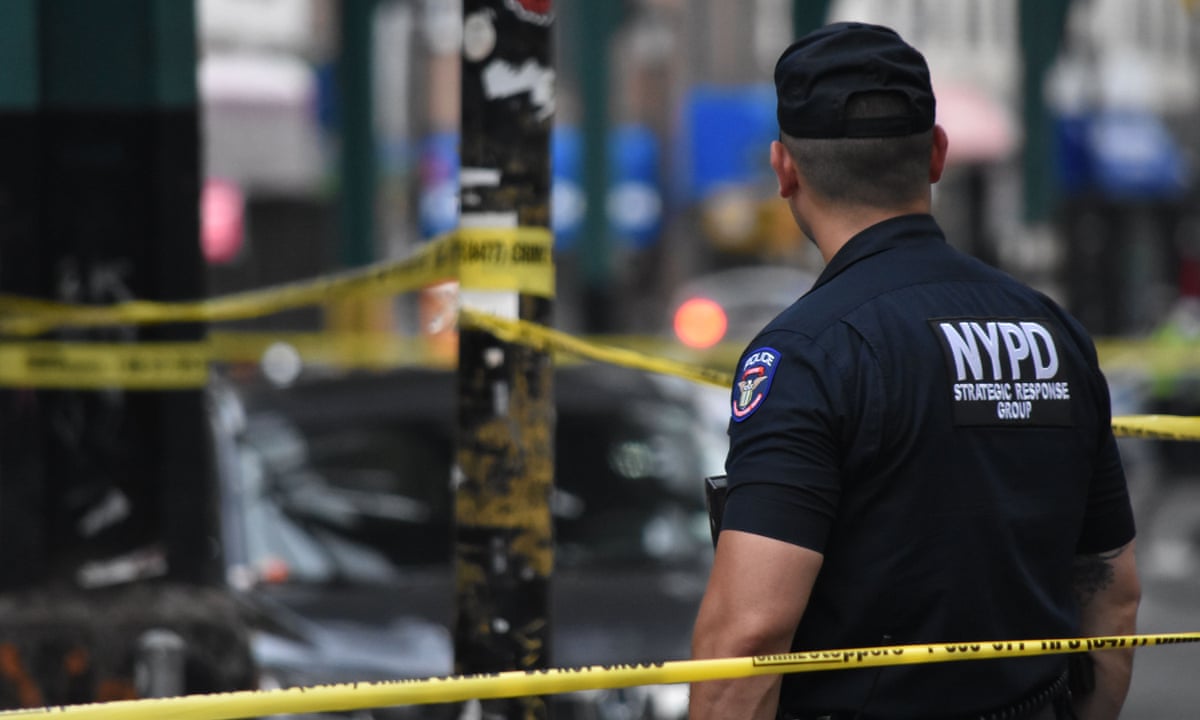According to recently uncovered documents, New York law enforcement agencies have invested significant sums of money to enhance their capacity for monitoring and analyzing social media content. These documents, which were obtained by the Surveillance Technology Oversight Project (Stop), a privacy advocacy non-profit, and subsequently shared with The Guardian, shed light on the New York Police Department’s actions. In 2018, the NYPD entered into a contract worth nearly $9 million with Voyager Labs, a surveillance company that has faced legal action from Meta for allegedly employing around 40,000 fictitious Facebook accounts to gather data on approximately 600,000 users.
The NYPD’s acquisition of Voyager Labs’ products, as detailed in the documents, revolves around the company’s claims that its artificial intelligence technology can analyze online human behaviour and identify and forecast instances of fraud and criminal activities. This development raises concerns about the extent to which law enforcement agencies are delving into the realm of social media monitoring and the potential misuse of such capabilities.
A separate document discloses an agreement between the Queens district attorney and Cobwebs Technologies. This Israeli firm offers social network mapping products and tools for tracking location information via phones. The exact value of this contract remains undisclosed.
Law Enforcement’s Use of Social Media Analytics Raises Ethical and Legal Concerns
For years, law enforcement agencies throughout the United States have collaborated with social media analytics companies in an effort to efficiently gather and analyze the vast amounts of personal information available on the internet. However, experts argue that this practice can sometimes venture into ethical and legal grey areas. This is especially concerning when such tools are used to access private information, make inferences, or predict future criminal behaviour based on social media content. Additionally, there are concerns that these partnerships may enable law enforcement to circumvent the need for subpoenas and warrants when collecting information on individuals.
Stop’s Communications Director, William Owen, points out that there is often limited public information available regarding law enforcement’s contracts with private surveillance companies. This lack of transparency makes it challenging to hold law enforcement agencies accountable for potential privacy violations and unreasonable searches and seizures. Owen notes, “It takes something like a [Freedom of Information Law] request to then receive any information from the NYPD, which often is redacted.”

The NYPD contract reveals that in 2018, the department acquired Voyager Labs’ tools, specifically Voyager Analytics and Genesis, at a cost of nearly $9 million. Additionally, they allocated over $1.6 million for service renewals in 2021. The department has confirmed that they are still actively collaborating with Voyager.
Engagement of NYPD with Voyager Labs: Implications and Concerns
As previously reported by The Guardian, Voyager Labs positions itself as a software company assisting law enforcement in surveillance and investigations by aggregating and reconstructing individuals’ complete digital footprints.
Internal documents obtained by the civil rights organization, The Brennan Center, and shared with The Guardian in 2021 illustrate that Voyager informs its clients that its analytics software can create a comprehensive map of an individual’s online posts and their social connections. This encompasses direct connections on social media platforms and “indirect” connections, referring to individuals with whom the subject of the investigation shares at least four mutual friends. The company’s user guide indicates that this capability enables the software to “unearth previously unknown middlemen or instances of improper association.” Notably, even if someone removes a friend from their social network, the company maintains an archive of their prior connection.
The disclosed documents also reveal that Voyager Analytics allows clients to create “avatars,” which are essentially fake social media profiles. These avatars are used to “collect and analyze information that is otherwise inaccessible.” This particular feature has sparked controversy and backlash from social media companies. Meta, the parent company of Facebook, filed a lawsuit in January seeking to prohibit Voyager from accessing any of its services. Meta’s allegations included Voyager’s creation of 38,000 fake Facebook and Instagram accounts. Even after Meta revoked Voyager’s access and sent cease-and-desist letters, Voyager was found to have created an additional 17,000 fake accounts. Voyager has filed a motion to dismiss the lawsuit and denies any involvement in creating fake accounts.
NYPD’s Use of Voyager Software and Social Network Analysis Tools
The exact nature of the New York Police Department’s (NYPD) use of Voyager software remains unclear due to a lack of transparency regarding their contract. However, the department did outline its general policy concerning social network analysis tools in a 2021 report addressing the privacy implications of these tools. In the report, the NYPD stated that it employs such tools to uncover “information relevant to investigations and to address public safety concerns.”
The department utilizes these tools to analyze information that is publicly available and “information that is viewable as a result of user privacy settings or practices.” The latter statement is somewhat ambiguous, but it should be noted that New York police are legally permitted to use fake social media profiles. If someone unknowingly accepts a friend request from a police officer, it is considered as consent, as clarified by Stop Legal Director David Siffert.
The NYPD and Queens District Attorney’s Office are using social media analytics tools for criminal investigations. While the NYPD declined to provide details, they stated that these tools help prevent crime and catch offenders but do not predict future criminal behaviour. Cobwebs Technologies, used by the Queens DA, offers platforms like Tangles and Webloc, which analyze internet data to identify threats and connections. Webloc collects location data and personal information from mobile phones. Both organizations have not disclosed specific usage details and emphasize compliance with privacy regulations like GDPR.











